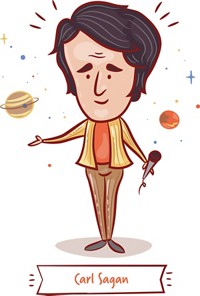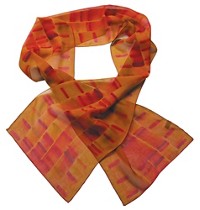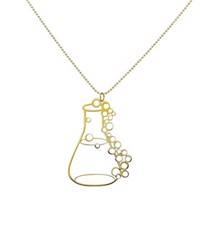Advertisement
Grab your lab coat. Let's get started
Welcome!
Welcome!
Create an account below to get 6 C&EN articles per month, receive newsletters and more - all free.
It seems this is your first time logging in online. Please enter the following information to continue.
As an ACS member you automatically get access to this site. All we need is few more details to create your reading experience.
Not you? Sign in with a different account.
Not you? Sign in with a different account.
ERROR 1
ERROR 1
ERROR 2
ERROR 2
ERROR 2
ERROR 2
ERROR 2
Password and Confirm password must match.
If you have an ACS member number, please enter it here so we can link this account to your membership. (optional)
ERROR 2
ACS values your privacy. By submitting your information, you are gaining access to C&EN and subscribing to our weekly newsletter. We use the information you provide to make your reading experience better, and we will never sell your data to third party members.
Awards
Newscripts
Views askew: An unusual prize and ionized words
by Bethany Halford
April 28, 2024
| A version of this story appeared in
Volume 102, Issue 13
€10,000 for useless inventions

The German Chemical Society has put out a call for nominations for the Mario Markus Prize for Ludic Science. The award, which comes with a €10,000 (a little more than $10,000) purse, is given “for an unexpected invention or discovery in the natural sciences that has no visible application,” according to a press release.
The prize was established and financed by Mario Markus, a retired biophysics professor from the Max Planck Institute of Molecular Physiology. Markus has an interest in what he calls “ludic” science—playful discoveries undertaken out of curiosity about the world with no applications in mind.
“There’s one thing from the 19th and 18th century which has been lost—and that is to have curiosity for nature and do research because of that,” Markus tells Newscripts. In his book about such discoveries, Ludische Wissenschaften, he cites Gregor Mendel’s early genetic experiments with pea plants and John Wesley Hyatt’s work to make billiard balls from a synthetic source rather than ivory as examples of ludic science.
The prize was first given in 2022 to a team at the University of Liverpool and the University of Bonn for their paper “Beer Mats Make Bad Frisbees” (Eur. Phys. J. Plus 2021, DOI: 10.1140/epjp/s13360-021-01732-1). Last year’s prize went to Juliane Simmchen of the Technical University of Dresden and the University of Strathclyde for her work on biomimetic behavior in artificially created active matter (Soft Matter 2020, DOI: 10.1039/D0SM01603A).
Markus hopes the prize will help more scientists pursue ludic projects. These types of projects are fun—and who knows?—they may find applications in the future.
If you know of a useless invention or playful idea with no obvious applications that is prize worthy, upload a short cover letter; a curriculum vitae; and at least one publication describing the work, published in a peer-reviewed journal in 2019 or later, at gdch.de/nominations. You can find general information about the prize at gdch.de/mariomarkus. The deadline is May 31.
A meditation on cations

Over the transom, Newscripts recently received correspondence from longtime American Chemical Society member David L. Wagger of Bethesda, Maryland. His note is a reminder of how chemists can see the world of words slightly askew.
“After reading Newscripts each week for a long time (I have been an ACS member since 1986), I have finally decided to submit something, mostly out of an equal mixture of irritation (not at Newscripts) and amusement,” Wagger begins his note.
The source of his irritation and amusement? Numerous advertisements for various “cations.”
The first ad that caught his attention was from a government agency. It read: “Stay Cool with these Lake-cation Destinations!”
“Really?! Hmmmm . . . those would be lakes along the Appalachian Mountains from Virginia to Maine with H+(H3O+), Ca2+, Mg2+, K+, and Na+,” he writes, citing the cations the US Environmental Protection Agency uses to monitor surface-water chemistry in New England, the Adirondack Mountains, the northern Appalachian Plateau, and the Central Appalachians.
Wagger also received a series of messages from a national rental car company. The last one was captioned: “LAST CHANCE to save on a spring Car-Cation!” Wagger writes, “Hmmmm . . . I guess that my choices are Pb2+ and Li+.”
Finally, he ends the note: “And I do not want to even know what a Stay-cation would be (perhaps too much or too little K+).”
Wagger’s note brought to mind a 2022 post on Twitter (now X) from user @DJGould94, which read, “Chemists who publish negative findings should call those papers publianions instead of publications.”
After Newscripts passed this tidbit along to Wagger, he replied that he just needed to share his musings “with people who would understand.” He added, “Also, I am always happy to read about chemistry and chemical engineering graduate students who unionize. Being ionized is a terrible thing!”
Please send comments and suggestions to newscripts@acs.org.





Join the conversation
Contact the reporter
Submit a Letter to the Editor for publication
Engage with us on Twitter